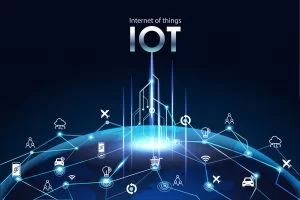What Does the Future Hold for Smart Home Technology?
Euromonitor International Research analyst shares his thoughts on key trends in Smart home technology ahead of his keynote presentation at Smart Home Summit 2019.

Ahead of his keynote panel sessions next week at Smart Home Summit in San Francisco, Luis Zamudio spoke with IoT World Today about key trends and the future of smart home technology. In the following interview, Zamudio shared his thoughts on everything from the future of the smart home to the biggest roadblocks to broader adoption.
Can you tell us about your role and what you’re working on at the moment?
Zamudio: I analyze the consumer electronics and consumer appliances markets in the U.S. and Mexico. To understand the industry landscape, I pay close attention to trends in manufacturing and consumer preferences, as well as the disconnects that sometimes develop between the two. I’m currently working on a report about the adoption challenges smart home technology faces in Latin America.
Smart Home Summit is the conference that focuses on interoperability, cybersecurity and the future of the smart home. Book your conference pass here.
What trends do you see being big in the future of smart home technology?
Zamudio: Partnerships by manufacturers across industries are key to the success of smart home technology. Current examples of this include the broad array of devices that work with Alexa and Google Home and specialized startups like Yummly and SideChef that partner with appliance manufacturers to bring value to their connectivity. I expect we’ll be seeing even more creative collaborations soon.
What do you think the future holds for smart home technology?
Zamudio: Usage amongst early adopters proves home automation can improve quality of life, making the technology more attractive to consumers who are currently wary of its benefits. The next four years will bring rapid growth as consumers continue to learn about use cases for fully integrated smart homes. I believe some form of the technology will be commonplace in most Americans’ daily lives soon, and the number of automated homes will expand substantially.
What do you think is the biggest roadblock/frustration to the adoption of smart home technology?
Zamudio: Many U.S. consumers still don’t believe that smart home technology offers enough value. In large part, this is because many of the technology’s benefits are hard to grasp when devices are not integrated well. The industry can address this challenge by furthering consumer education efforts, resolving interoperability issues and simplifying user interfaces. When more consumers can see the technology’s potential and long-term dollar savings, they will be more willing to invest in building out their own smart homes.
Many industry players are already doing a good job of facilitating integration. There is a fast-growing market for professional home automation, with companies like Control 4 and Josh.ai demonstrating the technology’s potential. Though professional installation solutions aren’t affordable for many households, well designed phone applications, smart hubs and voice assistants are making it easier to manually set up and control the technology. Highlighting successful integration in a broad range of households will be key to overcoming consumer wariness.
You will be speaking at Smart Home Summit in November, what topics will you be discussing?
Zamudio: I’ll be discussing how increased interoperability between smart devices can help smart home technology overcome some of its greatest challenges. As previously mentioned, simple installation and integration are crucial to expanding the user base for the technology, and there are still many opportunities for improvement in both areas. Ensuring that the abundance of connected devices available to consumers work together seamlessly will benefit the whole smart home industry.
Why do you think conferences like this are so important?
Zamudio: Conferences like the Smart Home Summit are one of the best ways to gain cross-industry knowledge and come up with new ideas for your own organization. The evolution of smart home technology shows the value of this knowledge exchange. A couple of years ago, every manufacturer seemed to be rolling out “connected” or “smart” devices that had limited value on their own. Consumers were left overwhelmed by the plethora of options and became doubtful about the value proposition provided by smart home technology. As partnerships between manufacturers across industries have become more common, we have begun to see the true potential of the smart home.